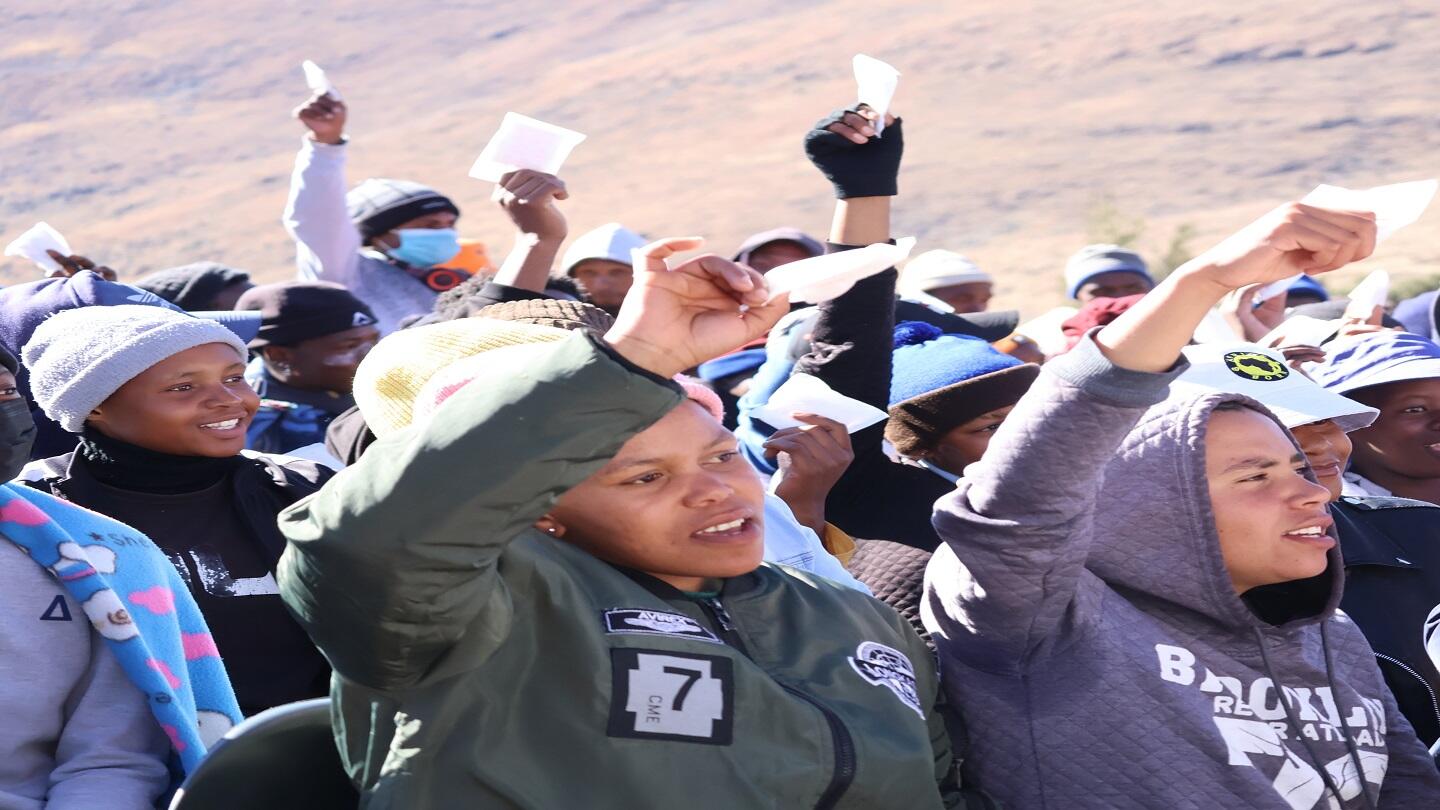At Seeiso High School in Mokhotlong, a small but mighty project is quietly transforming the lives of adolescent girls—one sanitary pad at a time.
In an area where poverty and migration have left many children fending for themselves, the absence of basic menstrual products has long been a barrier to education. But here, in this often-overlooked corner of Lesotho, the school has taken an extraordinary step to ensure no girl is left behind because of her period.
“We keep emergency sanitary pads in the office,” says Mr. Taelo Motabola, the school’s Principal. “We understand that when girls don't have the products they need, they often miss school. That is something we can no longer accept.”
What makes this initiative remarkable is its funding source. Seeiso High School runs a piggery project—an income-generating initiative where pigs are raised and sold, with proceeds directed toward supporting the school’s most vulnerable learners. Many of these children are left behind while their parents seek work in South Africa. The funds are used not only to purchase sanitary pads but also to hire textbooks and meet other essential needs.
“This project is more than just a source of income. We are giving our children—especially our girls—a chance to stay in school, to dream, and to thrive,” Mr. Motabola explains.
Every year on 28 May, the world marks Menstrual Hygiene Day, a global call to action to end period poverty and stigma. This year’s theme— “Together for a #PeriodFriendlyWorld”—resonates deeply with what is happening at Seeiso High School.
Across sub-Saharan Africa, school absenteeism due to menstruation affects up to 31 percent of girls, according to UNFPA, the United Nations Sexual and Reproductive Health agency. “Every day, millions are denied the dignity, care, and support they need for menstrual health. Poor menstrual health can limit a person’s ability to attend school, work, or participate in society, diminishing their opportunities to thrive throughout life.”
In Lesotho, where access to services is already stretched and poverty remains entrenched, the consequences of neglecting menstrual health are especially profound. For girls in child-headed households or under the care of elderly grandparents, menstruation can become a monthly crisis—forcing them to miss class and fall behind.
Recognizing this urgent need, UNFPA supported the development of Lesotho’s National Menstrual Health and Hygiene Strategy (2025–2030). The strategy is designed to address period poverty and promote menstrual dignity nationwide. It prioritizes access to menstrual products, accurate information, and supportive services, and seeks to build the kind of inclusive, compassionate infrastructure already exemplified by Seeiso High School.
In many ways, the piggery project at Seeiso is a grassroots expression of the strategy’s core vision: that menstrual health is not just a hygiene issue—it is a human rights issue and a cornerstone of sexual and reproductive health and gender equality.


